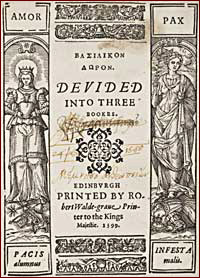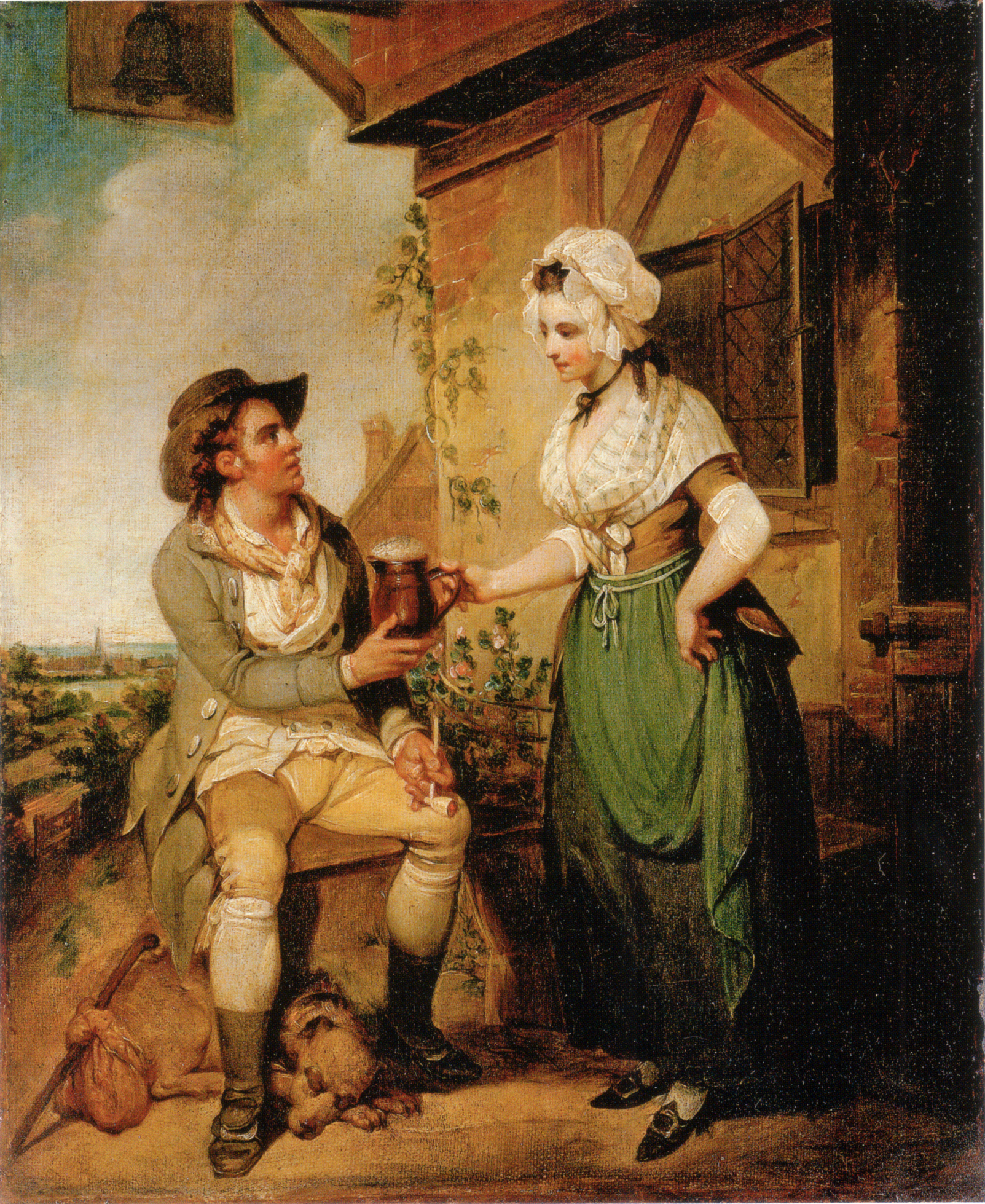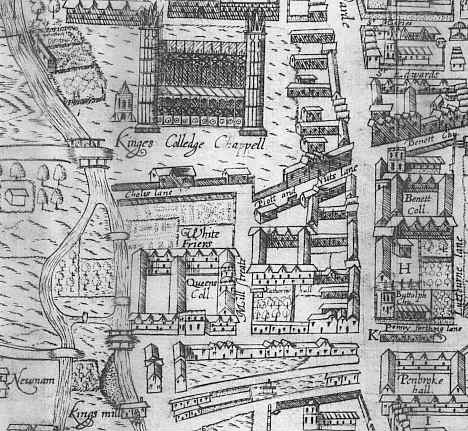|
Cotswold Olimpick Games
The Cotswold Olimpick Games is an annual public celebration of games and sports now held on the Friday after Spring Bank Holiday near Chipping Campden, in the Cotswolds of England. The games likely began in 1612 and ran (through a period of discontinuations and revivals) until they were fully discontinued in 1852. However, they were revived in 1963 and still continue as of 2024. The games originated with a local lawyer, Robert Dover (Cotswold Games), Robert Dover, with the approval of James VI and I, King James I. Dover's motivation in organising the games may have been his belief that physical exercise was necessary for the defence of the realm, but he may also have been attempting to bring rich and poor together; the games were attended by all classes of society, including royalty on one occasion. Events Events included horse-racing, coursing with hounds, running, jumping, dancing, sledgehammer throwing, fighting with swords and Club (weapon), cudgels, quarterstaff, shin-kicki ... [...More Info...] [...Related Items...] OR: [Wikipedia] [Google] [Baidu] |
Robert Dover (Cotswold Games)
Robert Dover (1575/82–1652) was an English attorney, author and wit, best known as the founder and for many years the director of the Cotswold Olimpick Games. Family Robert was probably born between 1575 and 1582 in Norfolk, one of four children sired by a John Dover, but as the parish registers in Great Ellingham did not begin until 1630 it is impossible to be certain. In 1610, Dover married Sibilla Sanford, daughter of William Cole (Puritan), William Cole, Dean of Lincoln and widow of John Sanford of Stow on the Wold; they had two sons (Robert, died in infancy, and John, 1614–1696) and two daughters (Sibella and Abigail). Education and professional life Dover was a scholar at the University of Cambridge in 1595, possibly as a sizar at Queens' College, Cambridge, Queens' College: (one othree entries under the name "Robert Dover" during his time at Cambridge the "Gog Magog Games" were held on the Gog Magog Hills outside Cambridge, although it is not known whether these wer ... [...More Info...] [...Related Items...] OR: [Wikipedia] [Google] [Baidu] |
Thomas Randolph (poet)
Thomas Randolph ( 15 June 1605March 1635) was an English poet and dramatist, recognised by his mentor Ben Jonson as being a promising writer of comedy, and amongst his contemporaries had a reputation as a wit. Early life and family Thomas was born at Newnham, Northamptonshire, near Daventry, England, eldest son of William Randolph (1572–1660) and Elizabeth, daughter of Thomas Smith, of Newnham. He was baptized on 18 June 1605. William and Elizabeth had two other sons and a daughter. Around 1613 his mother died, shortly after giving birth to Randolph's sister. His father remarried about 1615 to Dorothy, the widow of Thomas West of Cotton End, and daughter of gentleman Richard Lane, of Courteenhall. Her brother was the barrister Richard Lane. William and Dorothy were married two years after the family moved to a house in Little Houghton where his father was steward to Lord Zouche. They had three daughters and four sons. Thomas's half-brother Henry (1623-1673) emigrated to Co ... [...More Info...] [...Related Items...] OR: [Wikipedia] [Google] [Baidu] |
Ben Jonson
Benjamin Jonson ( 11 June 1572 – ) was an English playwright, poet and actor. Jonson's artistry exerted a lasting influence on English poetry and stage comedy. He popularised the comedy of humours; he is best known for the satire, satirical plays ''Every Man in His Humour'' (1598), ''Volpone, Volpone, or The Fox'' (), ''The Alchemist (play), The Alchemist'' (1610) and ''Bartholomew Fair (play), Bartholomew Fair'' (1614) and for his Lyric poetry, lyric and epigrammatic poetry. He is regarded as "the second most important English dramatist, after William Shakespeare, during the reign of James VI and I, James I."The Editors of Encyclopaedia Britannica (12 June 2024)"Ben Jonson" ''Encyclopedia Britannica''. Archived frothe originalon 12 July 2024. Jonson was a Classics, classically educated, well-read and cultured man of the English Renaissance with an appetite for controversy (personal and political, artistic and intellectual). His cultural influence was of unparalleled breadth ... [...More Info...] [...Related Items...] OR: [Wikipedia] [Google] [Baidu] |
Michael Drayton
Michael Drayton ( – ) was an English poet who came to prominence in the Elizabethan era, continuing to write through the reign of James I and into the reign of Charles I. Many of his works consisted of historical poetry. He was also the first English-language author to write odes in the style of Horace. He died on 23 December 1631 in London. Early life Drayton was born at Hartshill, near Nuneaton, Warwickshire, England, in early 1563. Not much is documented about his early life, except that in 1580 he was in the service of Thomas Goodere of Collingham, Nottinghamshire. In his early years, it is believed that Drayton entered the service of Sir Henry Goodere, who provided for Drayton's education. Nineteenth- and 20th-century scholars, on the basis of scattered allusions in his poems and dedications, suggested that Drayton might have studied at the University of Oxford, and been intimate with the Polesworth branch of the Goodere family. More recent work has cast doubt on tho ... [...More Info...] [...Related Items...] OR: [Wikipedia] [Google] [Baidu] |
Endymion Porter
Endymion Porter (1587–1649) was an English diplomat and royalist. Early life He was descended from Sir William Porter, sergeant-at-arms to Henry VII, and son of Edmund Porter, of Aston-sub-Edge in Gloucestershire, by his cousin Angela, daughter of Giles Porter of Mickleton, in the same county. He was brought up in Spain—where he had relatives—as page in the household of Olivares. He afterwards entered successively the service of Edward Villiers and of Buckingham, and through the latter's recommendation became groom of the bedchamber to Charles I. In October 1622 he was sent to negotiate concerning the affairs of the Electorate of the Palatinate and the proposed "Spanish Match" of the Prince of Wales with the Infanta. He accompanied Charles and Buckingham on their foolhardy expedition in 1623, acted as their interpreter, and was included in the consequent attack made by Lord Bristol on Buckingham in 1626. Career In 1628, Porter was employed as envoy to Spain to ... [...More Info...] [...Related Items...] OR: [Wikipedia] [Google] [Baidu] |
Basilikon Doron
The ''Basilikon Doron'' is a treatise on government written by King James VI of Scotland (who would later also become James I of England), in 1599. Background ''Basilikon Doron'' (Βασιλικὸν Δῶρον) means "royal gift" in Ancient Greek and was written in the form of a private letter to James's eldest son, Henry, Duke of Rothesay (1594–1612). After Henry's death, James gave it to his second son, Charles, born 1600, later King Charles I. Seven copies were printed in Edinburgh in 1599, and it was republished in London in 1603, when it sold in the thousands. Content This document is separated into three books, serving as general guidelines to follow to be an efficient monarch. The first describes a king's duty towards God as a Christian. The second focuses on the roles and responsibilities in office. The third concerns proper behaviour in daily life. As the first part is concerned with being a good Christian, James instructed his son to love and respect God as wel ... [...More Info...] [...Related Items...] OR: [Wikipedia] [Google] [Baidu] |
Parish Ale
The Parish ale or church ale is a party or festivity in an English parish at which ale is the chief drink. It is typically a fundraising occasion for the parish that might include music and dancing. Very common in the later Middle Ages, parish ales encountered some opposition after the English Reformation, and some have survived into modern times in some form. In 2025, this form of fundraising is planned to take place at the church of St. Helen's in Colne. Types The word "ale", in the sense of an ale-drinking party, was part of many compound terms for types of party or festivity based on the consumption of ale or beer. Thus there was the leet-ale (held on "leet", the manorial court day); the lamb-ale (held at lamb-shearing); the Whitsun-ale (held at Whitsun), the clerk-ale, the church-ale etc. The word "bridal" originally derives from bride-ale, the wedding feast organised to raise money for the couple. The bid-ale, once very common throughout England, was a benefit feast to wh ... [...More Info...] [...Related Items...] OR: [Wikipedia] [Google] [Baidu] |
Gray's Inn
The Honourable Society of Gray's Inn, commonly known as Gray's Inn, is one of the four Inns of Court (professional associations for barristers and judges) in London. To be called to the bar in order to practise as a barrister in England and Wales, an individual must belong to one of these inns. Located at the intersection of High Holborn and Gray's Inn Road in Central London, the Inn is a professional body and provides office and some residential accommodation for barristers. It is ruled by a governing council called "Pension", made up of the Masters of the Bench (or "benchers") and led by the Treasurer#In the Inns of Court, Treasurer, who is elected to serve a one-year term. The Inn is known for its gardens (the "Walks"), which have existed since at least 1597. Gray's Inn does not claim a specific foundation date; none of the Inns of Court claims to be any older than the others. Law clerks and their apprentices have been established on the present site since at latest 1370, with ... [...More Info...] [...Related Items...] OR: [Wikipedia] [Google] [Baidu] |
Oath Of Supremacy
The Oath of Supremacy required any person taking public or church office in the Kingdom of England, or in its subordinate Kingdom of Ireland, to swear allegiance to the monarch as Supreme Governor of the Church. Failure to do so was to be treated as treasonable. The Oath of Supremacy was originally imposed by King Henry VIII of England through the Act of Supremacy 1534, but repealed by his elder daughter, Queen Mary I of England, and reinstated under Henry's other daughter and Mary's half-sister, Queen Elizabeth I of England, under the Act of Supremacy 1558. The Oath was later extended to include Members of Parliament (MPs) and people studying at universities. In 1537, the Irish Supremacy Act was passed by the Parliament of Ireland, establishing Henry VIII as the supreme head of the Church of Ireland. As in England, a commensurate Oath of Supremacy was required for admission to offices. In 1801, retained by the United Kingdom of Great Britain and Ireland, the oath continued ... [...More Info...] [...Related Items...] OR: [Wikipedia] [Google] [Baidu] |
Cambridge
Cambridge ( ) is a List of cities in the United Kingdom, city and non-metropolitan district in the county of Cambridgeshire, England. It is the county town of Cambridgeshire and is located on the River Cam, north of London. As of the 2021 United Kingdom census, the population of the City of Cambridge was 145,700; the population of the wider built-up area (which extends outside the city council area) was 181,137. (2021 census) There is archaeological evidence of settlement in the area as early as the Bronze Age, and Cambridge became an important trading centre during the Roman Britain, Roman and Viking eras. The first Town charter#Municipal charters, town charters were granted in the 12th century, although modern city status was not officially conferred until 1951. The city is well known as the home of the University of Cambridge, which was founded in 1209 and consistently ranks among the best universities in the world. The buildings of the university include King's College Chap ... [...More Info...] [...Related Items...] OR: [Wikipedia] [Google] [Baidu] |
Queens' College, Cambridge
Queens' College is a Colleges of the University of Cambridge, constituent college of the University of Cambridge. Queens' is one of the 16 "old colleges" of the university, and was founded in 1448 by Margaret of Anjou. Its buildings span the River Cam with the Mathematical Bridge and Silver Street connecting the two sides. College alumni include Desiderius Erasmus, who studied at the college during his trips to England between 1506 and 1515. Other notable alumni include author T. H. White, Israeli politician Abba Eban, founding father of Ghana William Ofori Atta, newsreader and journalist Emily Maitlis, actor and writer Stephen Fry, the Governor of the Bank of England Andrew Bailey (banker), Andrew Bailey, the British Member of Parliament (United Kingdom), members of Parliament Stephen Kinnock, Liz Kendall and Suella Braverman, and Fields Medallist James Maynard (mathematician), James Maynard. The college's first Nobel Prize winner is Demis Hassabis, Sir Demis Hassabis who rece ... [...More Info...] [...Related Items...] OR: [Wikipedia] [Google] [Baidu] |







